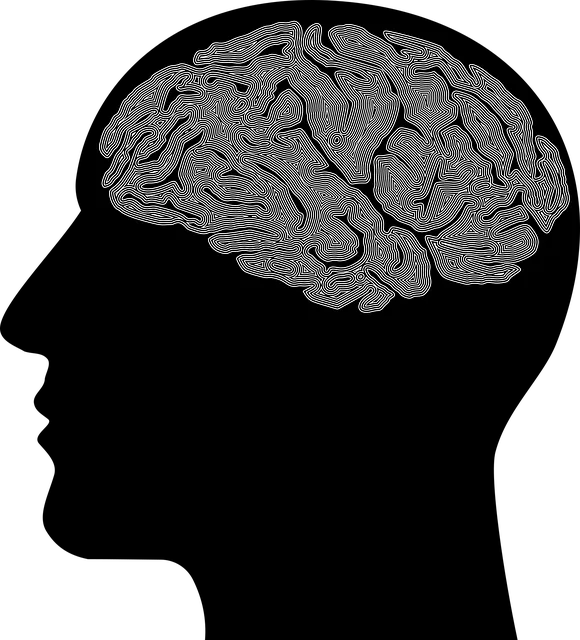Centennial Kaiser Permanente psychiatry employs a holistic risk management strategy prioritizing patient safety, well-being, and positive treatment outcomes through structured plans and proactive measures. Integrating diverse risk assessment techniques, safety protocols, self-care resources, and wellness coaching programs fosters a healing environment that builds resilience among patients. Effective risk management relies on robust documentation and record-keeping for continuity of care and enhanced risk assessment. The facility also focuses on mental health professional well-being through stress management strategies, open communication, and support. Crisis management involves swift responses to acute distress with multi-stepped processes, while continuous evaluation and improvement occur via case study reviews, peer supervision, and staying current with best practices research. These comprehensive approaches enhance care quality and patient outcomes aligned with Centennial Kaiser Permanente psychiatry's mission.
“Mental health professionals face unique challenges, necessitating robust risk management planning. This article explores comprehensive strategies tailored to the complex environment of Centennial Kaiser Permanente Psychiatry. We delve into essential aspects such as understanding risk management in mental health care, documentation practices, and hazard mitigation.
By examining real-world examples from Centennial Kaiser Permanente, we provide insights on crisis management protocols and continuous improvement techniques, equipping professionals with tools to navigate risks effectively.”
- Understanding Risk Management in Mental Health Care
- The Role of Documentation and Record Keeping
- Identifying and Mitigating Potential Hazards at Centennial Kaiser Permanente Psychiatry
- Crisis Management Protocols for Mental Health Professionals
- Continuous Evaluation and Improvement Strategies
Understanding Risk Management in Mental Health Care

Risk management in mental health care is a comprehensive approach to identifying and mitigating potential hazards that professionals in this field may encounter. It involves creating structured plans to ensure patient safety, well-being, and effective treatment outcomes. At Centennial Kaiser Permanente psychiatry, risk management is not just a protocol but an integral part of the treatment process, focusing on proactive measures to prevent adverse events.
This strategy encompasses various aspects such as understanding patient history, assessing potential risks during therapy sessions, implementing safety protocols, and providing resources for self-care and mood management. By integrating mental wellness coaching programs and encouraging self-esteem improvement, healthcare professionals can create a supportive environment that fosters both healing and resilience.
The Role of Documentation and Record Keeping

Effective risk management planning for mental health professionals at Centennial Kaiser Permanente psychiatry hinges on robust documentation and record-keeping practices. Every interaction with a patient, from initial assessments to progress notes, should be meticulously documented. This not only ensures continuity of care but also serves as a vital tool in risk assessment and mitigation. Accurate records enable healthcare providers to identify patterns, track changes in patient conditions, and make informed decisions regarding treatment plans.
Moreover, documentation plays a crucial role in compliance with mental health policies and regulations, enhancing the overall quality of care. The Healthcare Provider Cultural Competency Training, for instance, emphasizes the importance of documenting interactions that reflect cultural sensitivity and understanding. Similarly, Mental Health Policy Analysis and Advocacy relies on detailed records to demonstrate adherence to best practices and support policy changes aimed at improving patient outcomes.
Identifying and Mitigating Potential Hazards at Centennial Kaiser Permanente Psychiatry

At Centennial Kaiser Permanente Psychiatry, risk management planning is a proactive approach to ensure the well-being and resilience of mental health professionals. Identifying potential hazards is the first step in this process. These risks can stem from high-stress work environments, where professionals frequently encounter challenging patient cases or difficult interpersonal dynamics within the team. By acknowledging these stressors, the organization aims to foster a culture of open communication and support.
One effective strategy for mitigating risks involves incorporating practices like Inner Strength Development and Compassion Cultivation. Encouraging staff to engage in regular Self-Care Routine Development can enhance their ability to manage stress and prevent burnout. Additionally, providing resources and training sessions focused on resilience-building techniques allows professionals at Centennial Kaiser Permanente Psychiatry to navigate the complexities of their work with greater equanimity.
Crisis Management Protocols for Mental Health Professionals

Mental health professionals at Centennial Kaiser Permanente psychiatry are well-versed in crisis management protocols, a critical aspect of their risk management planning. In the event of a patient’s acute distress or suicidal ideation, the team swiftly activates a multi-stepped process designed to ensure patient safety and effective intervention. This involves immediate assessment by trained psychiatrists and psychologists, followed by tailored interventions like medication adjustments through the Community Outreach Program Implementation, psychotherapy, and mood management techniques to stabilize the individual.
The protocols also emphasize the importance of fostering positive thinking and building resilience among patients. By integrating these strategies, Centennial Kaiser Permanente aims to not only manage crises effectively but also empower individuals with coping mechanisms for long-term mental well-being. Such proactive measures reflect the facility’s commitment to holistic care, ensuring that patients receive comprehensive support tailored to their unique needs.
Continuous Evaluation and Improvement Strategies

Mental health professionals at Centennial Kaiser Permanente psychiatry are committed to continuous evaluation and improvement as part of their risk management strategy. This involves regularly reviewing case studies, participating in peer supervision sessions, and staying updated with the latest research on best practices. By fostering a culture of positive thinking and compassion cultivation practices, they strive to prevent depression and enhance patient care. Regular performance evaluations, feedback mechanisms, and ongoing training programs are integral to this process, ensuring that practitioners remain adept at managing complex cases while maintaining their own mental well-being.
The implementation of these strategies not only benefits individual therapists but also contributes to the overall quality of care within the organization. Through continuous learning and adaptation, professionals can better navigate challenging situations, ultimately leading to improved patient outcomes. This proactive approach aligns with the mission of Centennial Kaiser Permanente psychiatry to provide cutting-edge mental health services in a supportive environment.
Risk management planning is an indispensable tool for mental health professionals, especially within institutions like Centennial Kaiser Permanente Psychiatry. By implementing comprehensive documentation practices, identifying and mitigating hazards, establishing crisis management protocols, and fostering a culture of continuous evaluation, healthcare providers can enhance patient safety and improve outcomes. This structured approach ensures that mental health professionals are equipped to navigate complex situations effectively, ultimately contributing to a safer and more supportive environment for both patients and practitioners.






